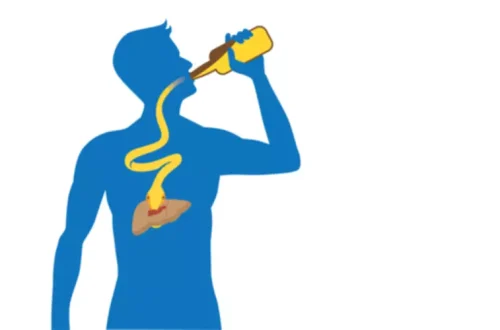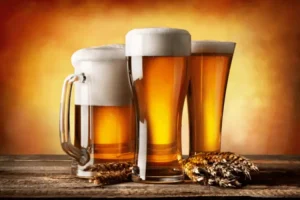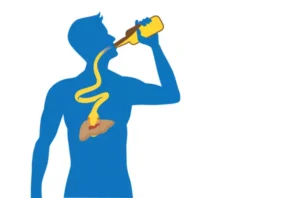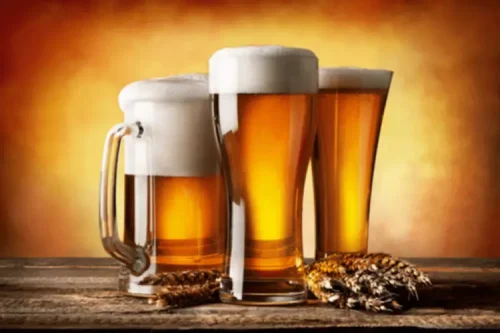
For example, alcohol may affect hormones that control appetite, hunger, and stress. Alcohol is high in calories and is likely to increase abdominal fat. Sharing an alcoholic beverage with someone is a common way to celebrate, wind down, or enjoy a night out. Alcohol can cause weight gain and bloating, especially when consumed in moderate to heavy amounts. Avoiding alcohol is the best way to prevent weight gain from the beverage. A healthcare provider can help guide treatment if you have concerns about drinking or weight loss.
Does Drinking Alcohol Make You Gain Weight?

So alcohol will change your body shape with increased body fat, weight gain, and abdominal fat. But keep in mind this is exponentially increased if you’re a heavy drinker, eat bad fattening foods, and aren’t exercising. Liver disease caused by excessive alcohol consumption can lead to weight gain because the liver plays a vital role in metabolizing fats and processing nutrients. Different types of alcoholic drinks vary in calorie content, with some being higher than others.

When to Use Mouthwash: Best Time of Day, Before or After Brushing, and More
As shown in Figure 1, ADH, cytochrome P450 2E1 (CYP2E1), and catalase all contribute to oxidative metabolism of ethanol. Support HuffPost by creating a free account and log in while you read. On top of that, alcohol is mainly metabolized in the liver, where fat is also metabolized. It’s the reason why men get beer bellies at any age, because their oestrogen levels are much lower. StyleCraze provides content of general nature that is designed for informational purposes only. The content is not intended to be a substitute for professional medical advice, diagnosis, or treatment.

Drinks To Avoid if You’re Trying To Lose Belly Fat
Therefore, alcohol consumption within the government guidelines of up to 14 units per week for men and women can provide almost 3,000 extra calories per week if choosing the highest calorie option. Otherwise, keep reading as we look at the three ways alcohol can lead to higher body weight, waistline, and health problems in the long term. Heavy alcohol use is one of the leading factors in the development of obesity and chronic does drinking liquor make you gain weight diseases. Alcohol’s influence on weight extends beyond just caloric intake.
- Several issues related to alcohol metabolism require further research.
- You’re stressed, so you’ll likely crave junk food to feel better again.
- For example, Simon says that alcohol can affect levels of reproductive hormones like testosterone and estrogen.
- You can strike a balance if you’re looking to lose weight while still enjoying an occasional drink with friends.
- Alcohol can affect many areas of your health, such as digestion and your ability to think clearly.
The real reasons alcohol makes you put on weight
- I’ve spent the last seven years researching and understanding alcoholism, addiction, and how people get sober.
- These consequences and the way they contribute to tissue damage and disease will be discussed in the following sections.
- BAC is determined by how quickly alcohol is absorbed, distributed, metabolized, and excreted.
- Interestingly, neither beer nor wine directly correlates to the expansion in your waistline and protrusion of your gut.
However, the effects of alcohol surpass even social drinking etiquette. When your body is using alcohol as a primary source of energy, the excess glucose and lipids end up, unfortunately for us, as adipose tissue, or fat. There are also other elements that can cause weight gain outside of calorie content. This means that they provide your body with calories but contain very little nutrients.

Are there ways to lose weight while still drinking alcohol?
As a result, people with diabetes may need to practice caution with alcohol. Drinking alcohol with diabetes medicine, especially on an empty stomach, may cause low blood sugar. Drinking alcohol can impair the functions of your glands that release hormones, which may cause weight gain. Below is a list from least calories to https://ecosoberhouse.com/ most, based on serving size. Naimi served on an advisory committee that wanted to lower the U.S. recommendation for men to one drink per day. That advice was considered and rejected when the federal recommendations came out in 2020.
Does Drinking Alcohol Prevent You From Losing Weight?
Alcohol consumption can contribute to the development of metabolic syndrome by increasing abdominal fat, raising blood sugar levels, and negatively impacting cholesterol and triglyceride levels. Alcohol has seven calories per gram, but this doesn’t factor in the drink size, added mixers like tonic water or soda, or how many drinks you consume during a meal. These extra calories can quickly add up, especially if you prefer mixed drinks. What’s more, calories from alcohol are typically considered empty calories, since most alcoholic drinks do not provide substantial amounts of vitamins, minerals, or other nutrients. But will drinking any alcohol prevent you from losing any unwanted fat? You can strike a balance if you’re looking to lose weight while still enjoying an occasional drink with friends.
- If you do want to put this to the test, to see if it’s the alcohol or your hormones that are making you gain weight, stop drinking wine or any alcoholic beverage for about a month.
- Then you should be able to avoid poor sleep quality as your body can achieve a night of deep sleep.
- Still, these factors do contribute to a longer-term connection between alcohol and weight gain.
- These fast foods are high in taste, low in nutrition value, and have a low filling ability that makes you crave for more.
- Join LifeMD today and experience amazing healthcare, discounted labs and prescription medications…
Sleep disorders
- In addition to its many effects on biochemical reactions, the NADH/ NAD+ ratio also may affect the activity (i.e., expression) of certain genes.
- And if you drink alcohol, you may have thought about that as well.
- Naimi served on an advisory committee that wanted to lower the U.S. recommendation for men to one drink per day.
- While there is limited evidence that directly links alcohol to weight gain, a connection has been identified.
- Sweet wines tend to have more calories, while sparkling wines tend to have fewer.
- Both apoptosis and necrosis contribute to alcohol-related liver damage.
Males are more likely to gain abdominal fat from drinking than females. Females may gain weight in their abdominal region after menopause when estrogen levels naturally decline. Alcohol Use Disorder Alcohol can reduce your blood sugar level, which may increase hunger.
